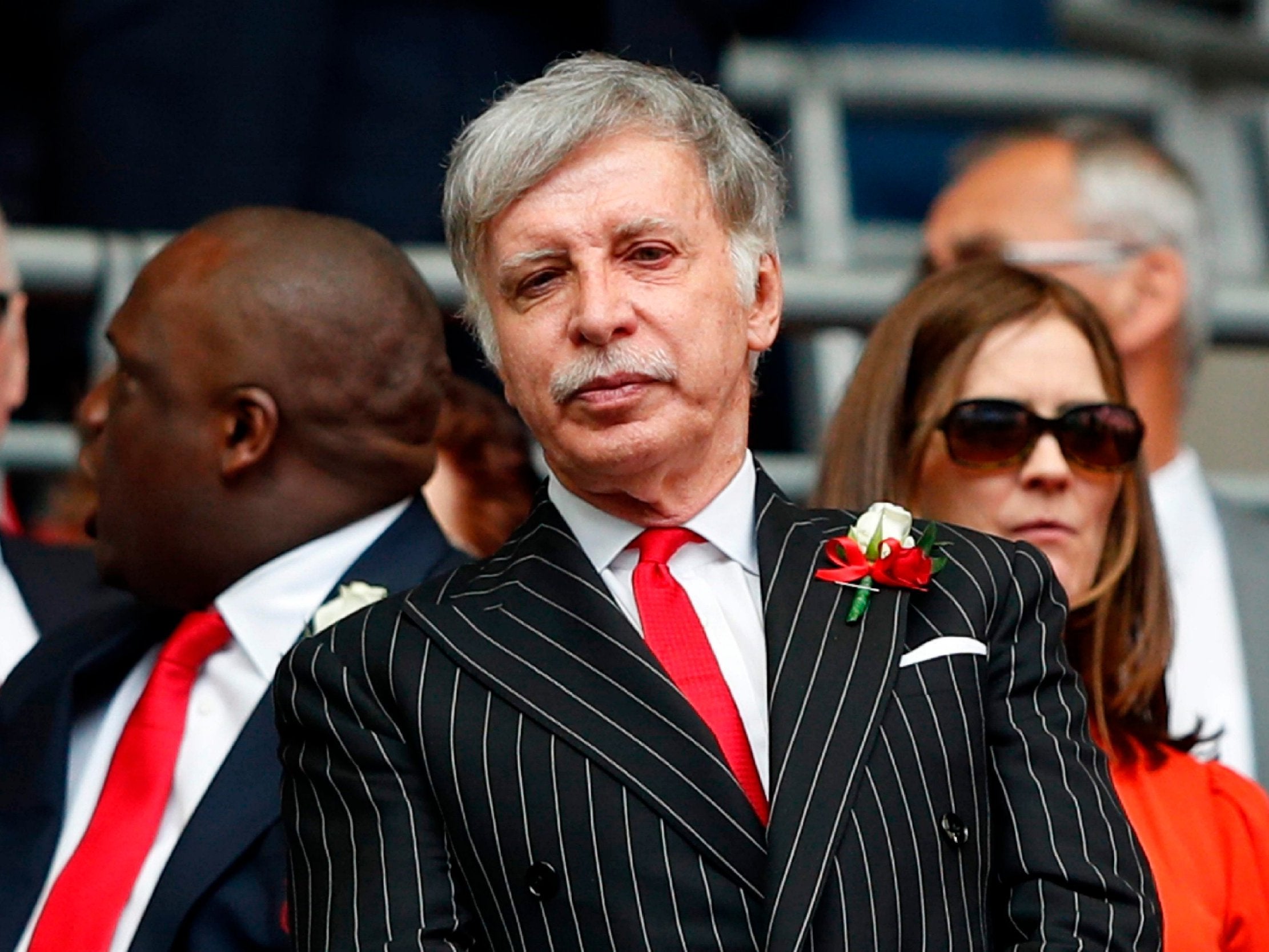As Arsenal cut ties with tradition, how they now choose to connect with fans becomes more an important than ever
Stan Kroenke is to buy out Alisher Usmanov’s 30 per cent to own the club outright, meaning one of England’s most traditional football institutions now becomes another truly modern club
To properly understand what Arsenal’s future will look like under new ownership, it’s worth considering what is now likely to be a sight of the past.
The club AGM increasingly descended into pantomime as shareholders got to at least put questions to directors about the running of the club, but it did have an increasingly serious point – and meaning. It was a rare moment of accountability among modern super clubs, whose structures now ensure they operate at a level way beyond supporters.
It was also a reflection of how Arsenal were still structured in a traditional way, a shareholder ownership, unlike so many other clubs.
That was already beginning to change as Stan Kroenke has been de facto owner for some time now, but Tuesday’s news that he is to buy out Alisher Usmanov’s 30 per cent to own the club outright confirms it.
That accountability is likely to go. That ownership structure is gone. That era might be gone, as England’s most traditionalist of football institutions now truly becomes another of those most modern of clubs.
There should be a genuine poignancy about that, although there was only justifiable anger from the Arsenal Supporters’ Trust, who described it as a “dreadful day”.
“Kroenke plans to forcibly purchase the shares held by Arsenal fans,” a statement read. “Many of these fans are AST members and hold their shares not for value but as custodians who care for the future of the club. “Kroenke’s actions will neuter their voice and involvement.”
There was also irritation that the Arsenal shareholders who now have to sell their shares – and for £29,000 a share when the going rate has been £37,000 – weren't notified by the club until more than five hours after the news broke, and only received an email at 1.01pm.
A continuation of communication like that could really foster what feels a growing motivation for a movement along the lines of the anti-Glazer ‘Green and Gold’ protest at Manchester United, especially since Kroenke is using a £557m loan from Deutsche Bank to help fund the buy-out.
And this is key in all this. We’re into even more of an unknown with Arsenal, where no one can really be sure what an even more insulated leadership will do next, what will happen with CEO Ivan Gazidis – who has been the subject of interest from Milan – or the club’s constantly debated transfer plans.
This is why it would feel prudent to meet with fan groups, or at least outline the club’s planned direction now.

A mission statement is more important than ever, or supporters will doubt what the objectives are. It would just go someway to assuaging fears that this is all about money, rather than football – an issue that has come up at Manchester United again.
This is a point astutely raised by Darren Epstein, whose 30 years as an Arsenal shareholder are now about to end.
‘’The club has been run in effect by the owner anyway, its just now we wont be able to judge how good or bad the shape of the club is because of transparency. Ultimately fans want a club they can be proud of, on and off the field, run well and ultimately the be all and end all is being successful. If Kroenke ultimately achieves that he will be lauded. But if we used to drive profits and this does not lead to success, then he will be judged and ultimately people will vote with their feet.”
When the feet of Sir Alex Ferguson and so many other football luminaries would go into the old Highbury stadium, they would often stop, since pretty much everyone spoke of the sense of awe and gravitas that came when you got to see the marble statues in those marble halls.
Ferguson made a point of mentioning it in his autobiography. It just immediately illustrated the grandiosity and tradition of Arsenal, if also some of the conservatism.
Those marble statues are now in the club museum, and the Emirates Stadium has a very different look; an ultra-modern look. That fits the fact that, after this move, Arsenal are now a fully modern club. That’s the modern football business.
That is what Arsenal represent. How they represent their supporters will now tell a lot.
Join our commenting forum
Join thought-provoking conversations, follow other Independent readers and see their replies
Comments
Bookmark popover
Removed from bookmarks